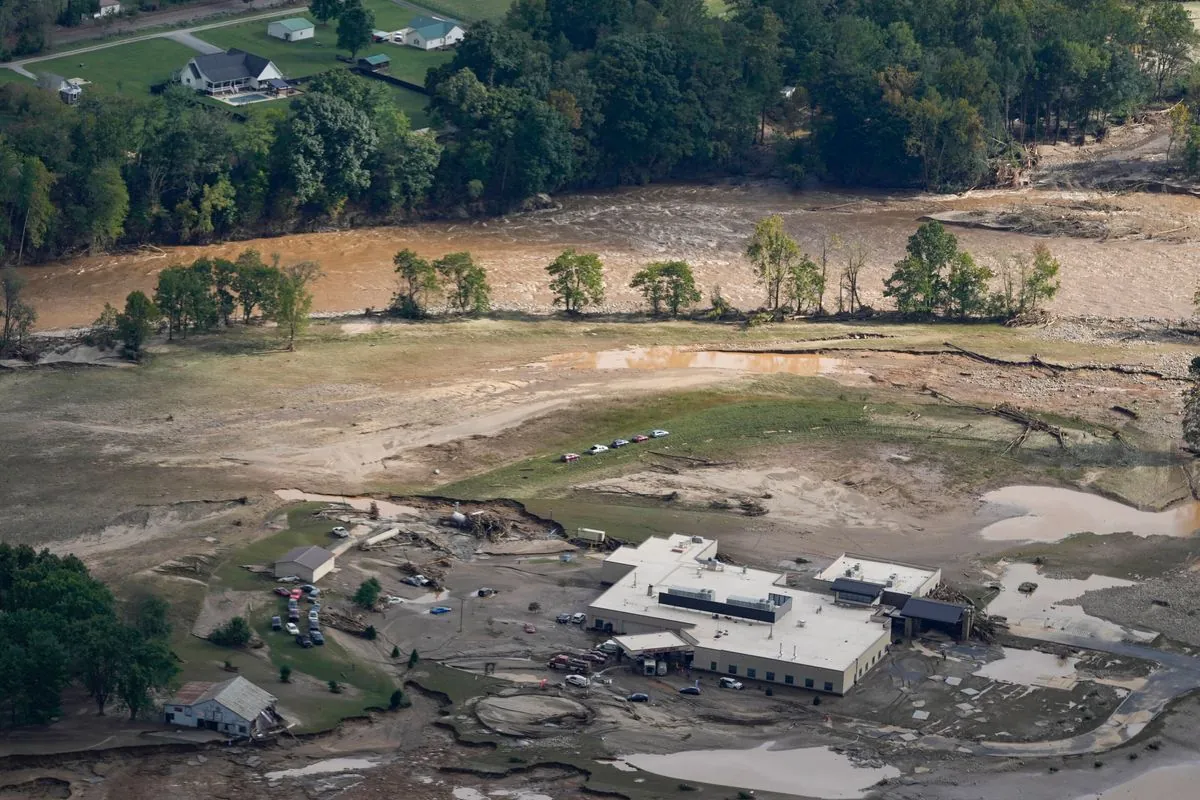In the wake of Hurricane Helene, healthcare facilities across the United States are grappling with a significant shortage of sterile intravenous (IV) fluids. This crisis stems from the temporary closure of Baxter International's manufacturing plant in Marion, North Carolina, due to flooding caused by the hurricane.
Baxter International, the nation's primary producer of IV solutions, typically manufactures 1.5 million bags daily. The American Hospital Association reports that this disruption has led to widespread supply chain issues, forcing hospitals to implement stringent conservation measures.
Paul Biddinger, chief preparedness and continuity officer at Mass General Brigham in Boston, expressed concern about the situation:
"I would characterize this as one of the bigger shortages that we've been through in the last decade or so. We acted early to make sure we're conserving as quickly as we possibly can."
Mass General Brigham, which utilizes over 100,000 liters of plain IV solution monthly, is now developing contingency strategies, including calculating the number of patients requiring peritoneal dialysis.
The impact of Hurricane Helene has been particularly severe for healthcare facilities in its direct path. Eric Deaton, chief operating officer for Ballad Health, reported that Unicoi County Hospital in Erwin, Tennessee, is "deemed a complete loss." The evacuation process was challenging, with some patients requiring airlift rescue from the hospital roof.
Relief efforts in affected areas face additional obstacles due to the region's mountainous terrain. Ryan Spellman, director of operations at Operation Airdrop, highlighted the difficulties in delivering essential supplies:
"You have to create a community's ability to survive and shelter in place."
Operation Airdrop has been providing not only standard relief items but also addressing specific medical needs, including insulin and over-the-counter medications.
At Mission Hospital in Asheville, North Carolina, Brian Pedersen, an ICU nurse, reported that staff were instructed to use IV fluids more sparingly. The hospital's emergency department experienced overwhelming patient loads, with patient-to-nurse ratios reaching as high as 10 to 1 at times.
The Federal Emergency Management Agency (FEMA) has intervened, setting up tents within emergency rooms to manage less severe injuries and alleviate pressure on hospital staff.
A recent study published in Nature reveals that the health impacts of tropical cyclones can persist for up to 15 years after the initial event. This suggests that the affected regions will require long-term support and resources to address both immediate and future health concerns.
As communities begin the process of rebuilding, experts emphasize the need for sustained attention to both physical and mental health issues in the aftermath of Hurricane Helene. The storm's far-reaching consequences serve as a stark reminder of the complex challenges faced by healthcare systems in the wake of natural disasters.
